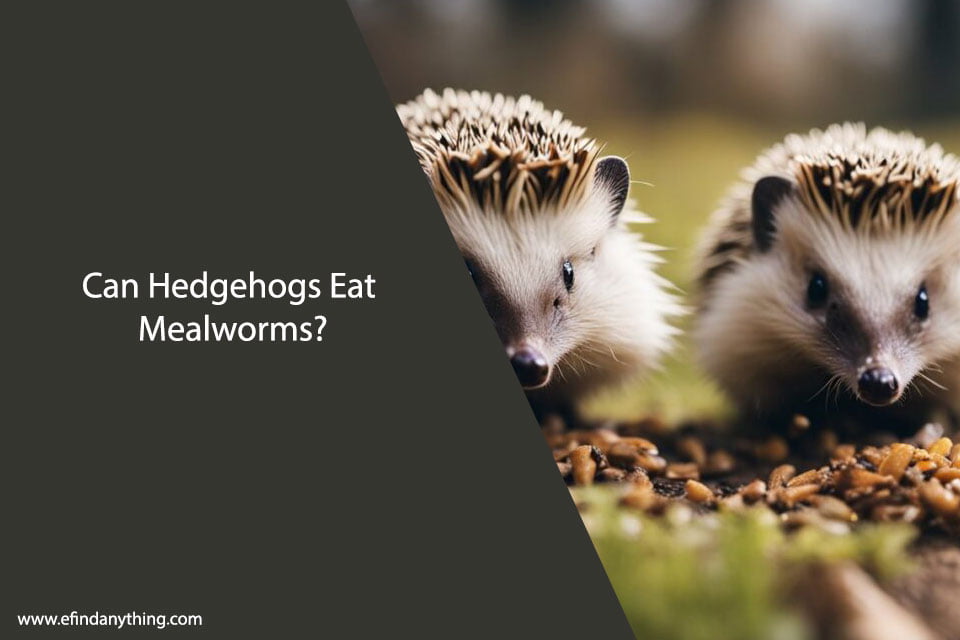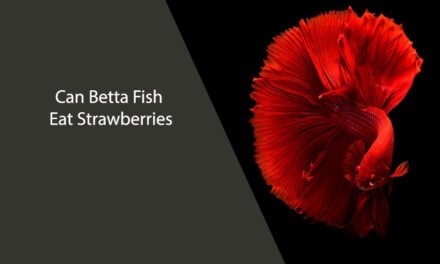Hedgehogs are fascinating creatures that have become increasingly popular as pets. They are known for their unique appearance and playful personalities. However, as with any pet, it is important to provide them with a balanced and nutritious diet. One question that often arises among hedgehog owners is whether or not they can eat mealworms.
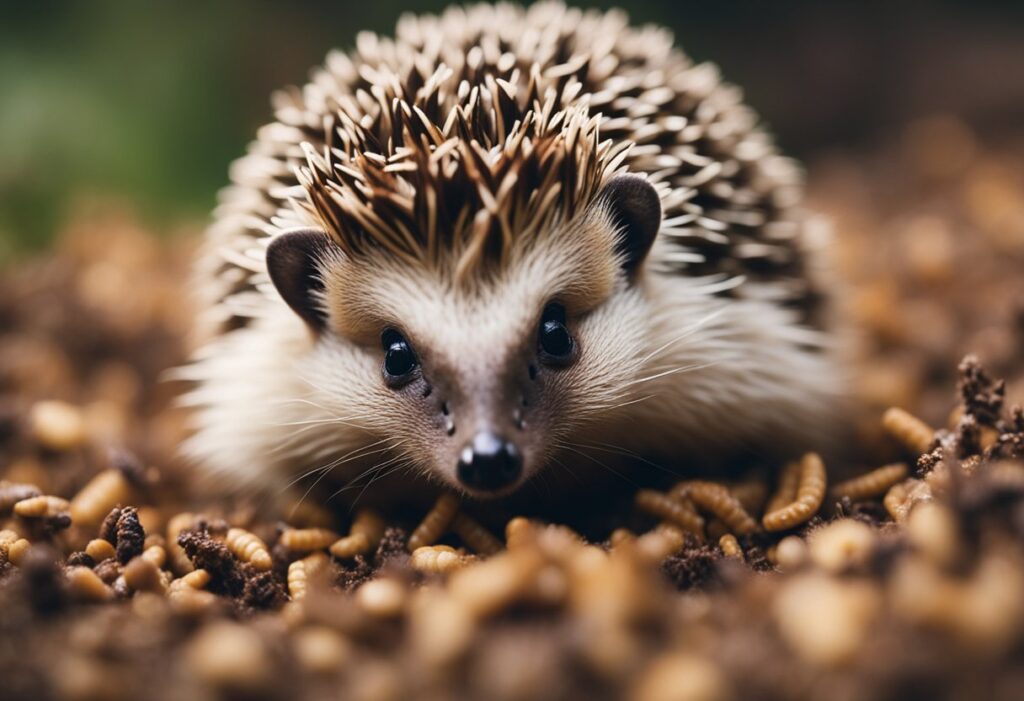
Mealworms are a common food item for many insect-eating animals, including birds, reptiles, and some small mammals. They are a good source of protein and other nutrients, but are they safe for hedgehogs to eat? In this article, we will explore the topic of whether or not hedgehogs can eat mealworms, and provide some helpful tips for feeding your hedgehog a healthy and balanced diet.
Table of Contents
Overview of Hedgehog Diet
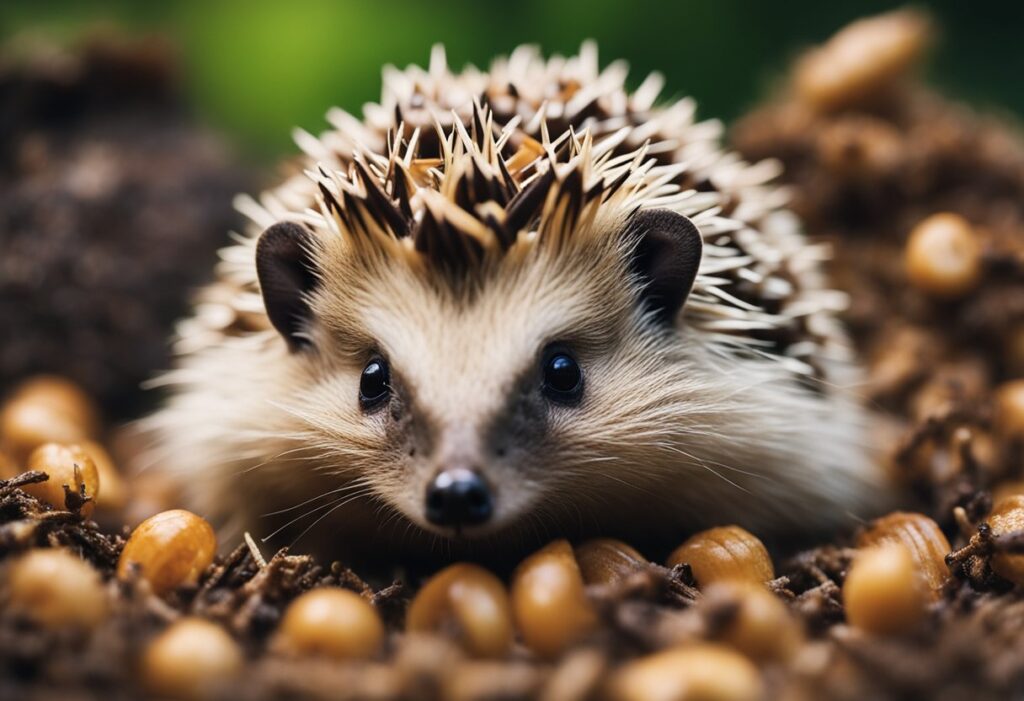
Hedgehogs are insectivores, which means that they primarily eat insects. However, they also eat other small animals such as worms, snails, and slugs. In addition, hedgehogs may consume small amounts of fruits, vegetables, and nuts.
It is important to note that hedgehogs have specific dietary requirements, and their diet should be carefully monitored to ensure that they receive the necessary nutrients. A diet that is too high in fat or lacking in certain vitamins and minerals can lead to health problems such as obesity, liver disease, and bone disorders.
When it comes to feeding hedgehogs, it is recommended to provide them with a high-quality, commercial hedgehog food that is specifically formulated to meet their nutritional needs. These foods typically contain a mix of protein, fiber, and vitamins and minerals.
In addition to commercial food, hedgehogs can also be fed live or dried insects such as mealworms, crickets, and waxworms. These should be offered in moderation as a treat, as they are high in fat and can lead to obesity if overfed.
Overall, it is important to provide hedgehogs with a varied and balanced diet that meets their specific nutritional needs. By doing so, we can help ensure that they stay healthy and happy.
Mealworms as a Food Source

When it comes to feeding hedgehogs, mealworms are a popular choice among pet owners. They are easy to find, affordable, and can provide a good source of protein for your hedgehog. However, it is important to understand the nutritional value of mealworms and the risks associated with feeding them to your pet.
Nutritional Value of Mealworms
Mealworms are a good source of protein, which is important for hedgehogs as they are primarily insectivores. They also contain fat, fiber, and some vitamins and minerals. However, it is important to note that mealworms are not a complete food source and should be fed in moderation as part of a balanced diet.
Here is a breakdown of the nutritional value of mealworms per 100 grams:
| Nutrient | Amount |
|---|---|
| Protein | 19.5 g |
| Fat | 13.1 g |
| Fiber | 1.7 g |
| Calcium | 20 mg |
| Phosphorus | 270 mg |
| Iron | 3.4 mg |
Risks and Precautions
While mealworms can provide a good source of protein for your hedgehog, there are some risks associated with feeding them. One potential risk is the possibility of impaction, which can occur if your hedgehog eats too many mealworms or if the mealworms are too large. This can lead to digestive problems and even death.
Another risk is the possibility of contamination. Mealworms are often raised on a substrate of bran or other grains, which can harbor bacteria and other pathogens. It is important to purchase mealworms from a reputable source and to store them properly to prevent contamination.
To minimize these risks, it is recommended to feed mealworms as a treat rather than a staple food source. They should be offered in moderation, and any uneaten mealworms should be removed from the cage to prevent overeating.
In conclusion, mealworms can be a good source of protein for hedgehogs, but they should be fed in moderation as part of a balanced diet. It is important to understand the nutritional value of mealworms and the risks associated with feeding them to your pet. By taking proper precautions, you can safely incorporate mealworms into your hedgehog’s diet.
Feeding Mealworms to Hedgehogs
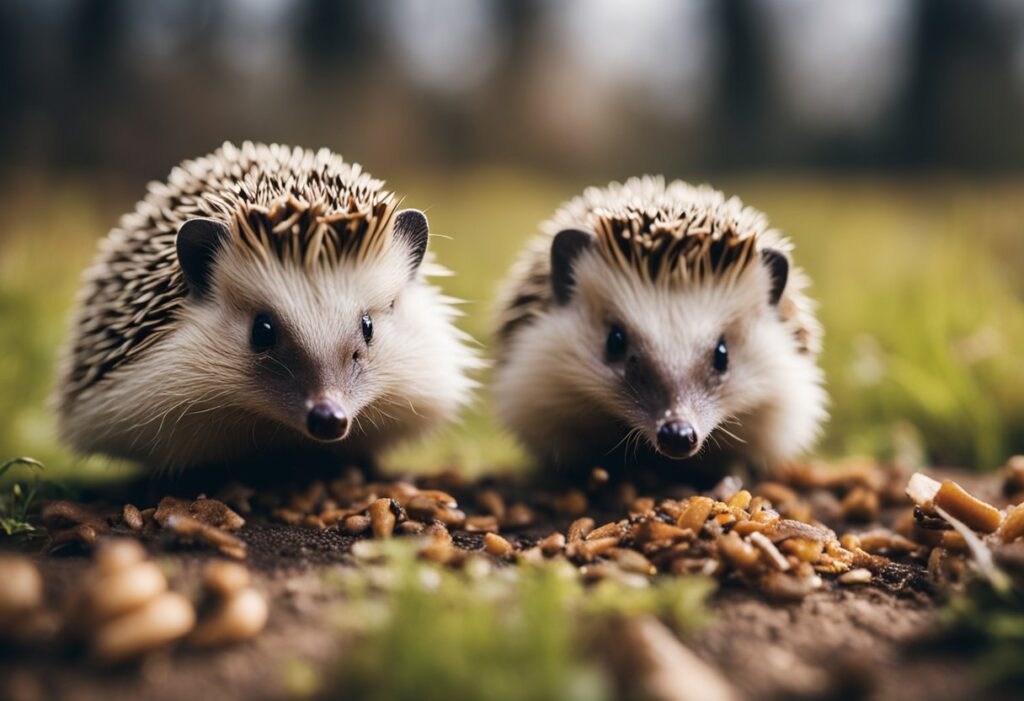
Hedgehogs are known to be insectivores, which means they primarily feed on insects. Mealworms are one of the insects that hedgehogs can eat. However, it is crucial to understand the quantity, frequency, and preparation methods of feeding mealworms to hedgehogs.
Quantity and Frequency
It is essential to feed mealworms to hedgehogs in moderation. Too many mealworms can cause obesity, which can lead to health problems. We recommend feeding mealworms to hedgehogs as a treat, not as a staple food. A few mealworms per week are enough for a hedgehog’s diet.
Preparation Methods
Before feeding mealworms to hedgehogs, it is crucial to ensure they are healthy. Mealworms that are sick or dead can cause health problems for hedgehogs. We recommend purchasing mealworms from a reputable supplier to ensure their quality.
It is also essential to prepare mealworms before feeding them to hedgehogs. We recommend washing mealworms in water to remove any dirt or debris. You can also feed mealworms to hedgehogs in their dried form, but make sure they are not treated with any chemicals.
In conclusion, mealworms can be a healthy treat for hedgehogs when fed in moderation and prepared correctly. However, it is crucial to understand the quantity, frequency, and preparation methods before feeding mealworms to hedgehogs.
Alternatives to Mealworms

When it comes to feeding hedgehogs, mealworms are not the only option. In fact, there are several alternatives to mealworms that can provide hedgehogs with the nutrition they need. Here are some options to consider:
1. Crickets
Crickets are a great alternative to mealworms. They are high in protein and easy to digest, making them an excellent source of nutrition for hedgehogs. You can buy crickets at most pet stores or online.
2. Waxworms
Waxworms are another great option for hedgehogs. They are high in fat and protein, which makes them an excellent source of energy. However, they should be fed in moderation as they are high in fat.
3. Cat Food
Believe it or not, cat food can be a great option for hedgehogs. Look for high-quality cat food that is high in protein and low in fillers. Wet food is a better option than dry food as it contains more moisture, which is important for hedgehogs.
4. Fruits and Vegetables
While hedgehogs are primarily insectivores, they can also benefit from eating fruits and vegetables. Some good options include apples, bananas, blueberries, carrots, and green beans. Just make sure to cut them into small pieces to avoid choking.
Overall, there are several alternatives to mealworms that can provide hedgehogs with the nutrition they need. Experiment with different foods to see what your hedgehog likes best, and always make sure to provide fresh water.
Conclusion
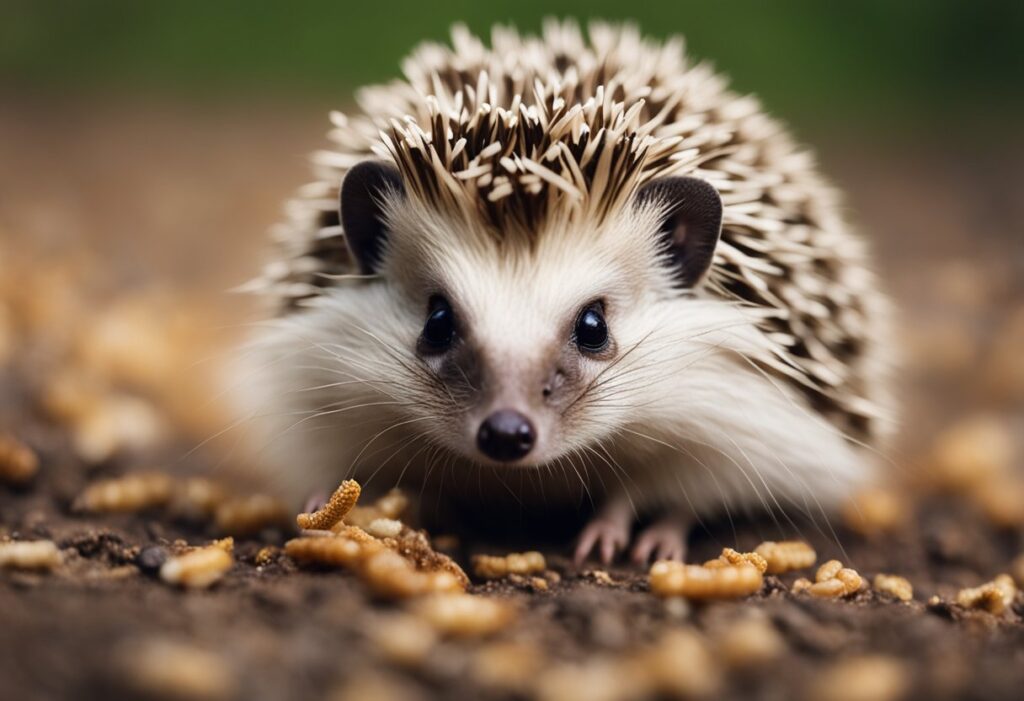
In conclusion, hedgehogs can eat mealworms as part of their diet. However, it is important to ensure that the mealworms are given in moderation and as a supplement to their main diet of insects and vegetables.
Mealworms are a good source of protein and fat, but should not be the only source of nutrition for hedgehogs. It is recommended to give mealworms as an occasional treat, rather than a staple food.
When feeding mealworms to hedgehogs, it is important to ensure that they are fresh and of high quality. Avoid feeding mealworms that have been exposed to pesticides or other harmful chemicals.
Overall, while mealworms can be a nutritious addition to a hedgehog’s diet, it is important to maintain a balanced and varied diet to ensure their overall health and well-being.
Frequently Asked Questions
What can I feed my hedgehog besides mealworms?
Hedgehogs are omnivores and can eat a variety of foods. Some good options include insects, such as crickets and waxworms, as well as cooked chicken, turkey, and eggs. It’s also important to provide your hedgehog with a high-quality commercial hedgehog food that contains the necessary nutrients.
Are mealworms harmful to hedgehogs?
Mealworms are safe for hedgehogs to eat in moderation. However, they should not be the only food in your hedgehog’s diet as they are high in fat and low in calcium.
How many mealworms should I feed my hedgehog?
It’s recommended to limit mealworms to no more than 2-3 per day for adult hedgehogs. For baby hedgehogs, it’s best to start with just one per day and gradually increase the amount as they grow.
What should I never feed my hedgehog?
There are several foods that should never be fed to hedgehogs, including chocolate, avocado, grapes, raisins, onions, garlic, and anything high in sugar or salt. These foods can be toxic to hedgehogs and cause serious health problems.
What do hedgehogs drink besides milk?
Hedgehogs should not be given cow’s milk as it can upset their stomachs. Instead, provide them with fresh water in a shallow dish or water bottle. Some hedgehogs may also enjoy diluted fruit juice as a treat.
Do hedgehogs eat vegetables?
While hedgehogs are primarily insectivores, they can also eat small amounts of vegetables. Good options include leafy greens, carrots, and sweet potatoes. However, vegetables should not make up a large portion of their diet as they are not as nutritionally important as protein and fat.

